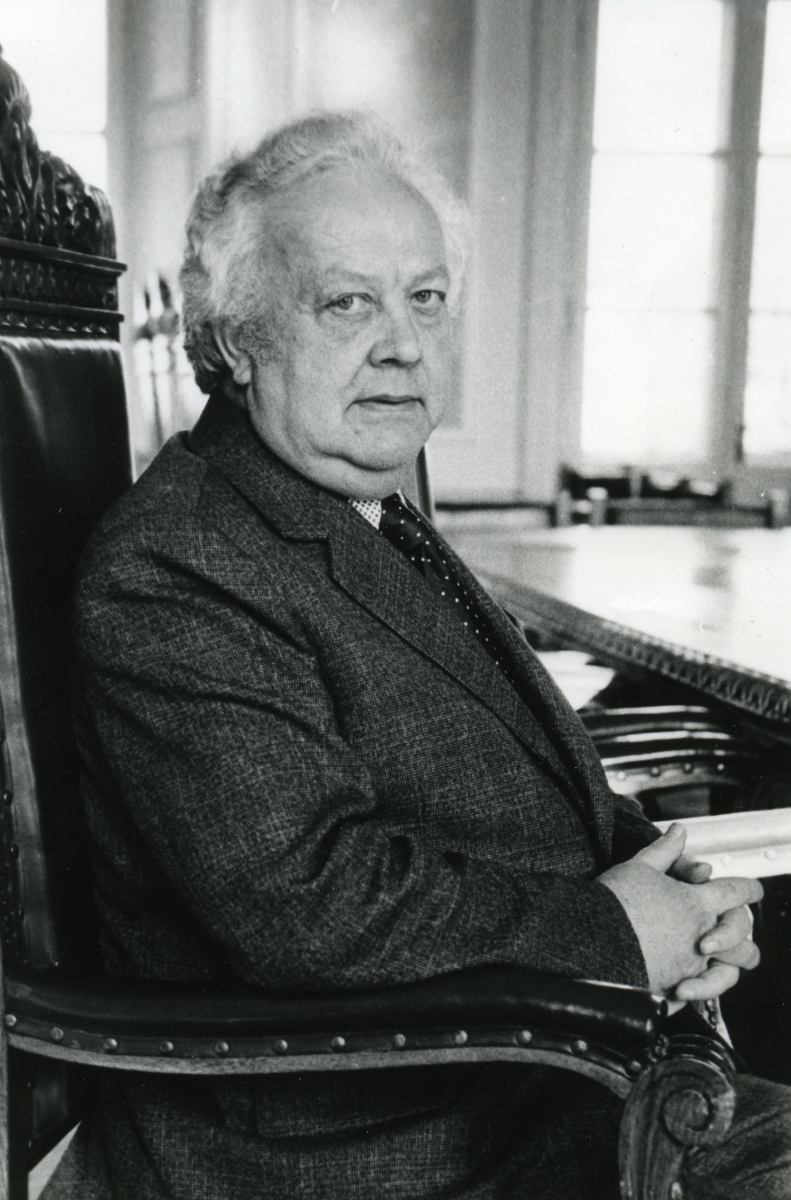
Juhan Peegel
Juhan Peegel (19. V 1919 – 6. XI 2007) was a linguist, prose writer and a researcher of journalism. He was born in Tüma farm, Reina village, Pöide parish, Saare County. He studied in Tornimäe (1928–1931) and at Uuemõisa primary school (1931–33), later at Saaremaa Co-Educational Gymnasium (1933–1938). He worked as an editor for Meie Maa newspaper (1938–39). In 1939, he joined the Estonian army and fought in several battles as a Red Army soldier after the occupation of Estonia in 1940. He was deployed in the artillery regiment of the 22nd Territorial Rifle Corps (1940–1941) and the 8th Estonian Rifle Corps (1942–1945), spent some time in the labor battalion in Sverdlovsk until demobilization in 1945. He studied Estonian Philology in the History and Language Department of Tartu State University (1946–1951) and continued as a post-graduate student in dialectology and Estonian language history (1951–1954). In 1954, he became a Mag.Phil and in 1973, obtained his PhD (certified in 1975) with his dissertation ‘The Early Period of Estonian Journalism 1766–1857’. He worked at Edasi newspaper from 1947–1952. From 1953, he worked as a lecturer of Estonian Language and Journalism at Tartu State University, became an assistant professor in 1957 and a professor in 1978. He was the founder and director of the Department of Journalism from 1979–1986, a consultant professor from 1987 and professor emeritus from 1993. He was a researcher of Estonian journalism, literature and the language used in folk songs. Among other works, he also published a dictionary of poetic noun synonyms of runic verse. He was a member of the Communist Party of the Soviet Union from 1966–1989, a member of Tartu Soviet of People’s Deputies from 1977–1982, a member of the Academy of Sciences since 1977, a Merited Researcher of the Estonian Soviet Socialist Republic in 1979 and a member of both the Estonian Writers’ Union (1956) and the Estonian Union of Journalists (1974). In 1975, he received the Soviet Estonian reward for his research into folk songs and in 1980, another one for a war novel. In 1996, he won the F. J. Wiedemann Language Award and in 1998, he was given the State Research Award for his life’s work. He also received the Johann Voldemar Jannsen Prize in 2002. Additionally, he was given the Tartu State University medal in 1976, the fourth-class Order of the National Coat of Arms in 1996 and was made the Honorary Citizen of Tartu in 1999.
In 1937, his first literary attempts were published in Tuleviku Rajad magazine. Before and after the war, he published humorous pieces, reviews and short stories. His short prose collections Saaremaa motiive (‘Motifs from Saaremaa’, 1964) and Lühikesed lood (‘Short Stories’, 1970) were inspired by his childhood home. The humorist collections Üks kaunis jutu- ja õpetuse raamat (‘One Beautiful Book of Stories and Teachings’, 1966) and Kolm tahedat lugemist (‘Three Hearty Readings’, 1973, written under the pseudonym H. D. Rosenstrauch) imitated the sentimental style of old-time authors. His prose collection Teed ja ristteed (‘Roads and Crossroads’, 1976) was followed by the influential war novel Ma langesin esimesel sõjasuvel (‘I Fell in the First Summer of War’, 1978/1979) that depicts the soldiers of the Estonian corps in Pskov who are destined to die in the first months of the war. The novel Aegade jäljed (‘Traces of Time’, 1990) recalls the hospital days of the war-wounded and the impasse of a university lecturer in the Soviet system. The collection Puhtetähed (1991) describes the first three periods of Estonian journalism. Peegel’s best literary works have been published in the volume Tuli koduaknas (‘Light in My Home Window’, 1983) of the collection Valitud teosed (‘Selected works’).
The stop-motion animation Verine John (‘Bloody John’, 1974; staged also as a puppet show in 1980) and the TV play Jürgen ja Klotilde (‘Jürgen and Klotilde’, 1976) were based on Peegel’s works. Ma langesin esimesel sõjasuvel was staged in Vanemuine (1979). He received the Tuglas Short Story Prize for the story Väekargajad (1977) and the literary award of the A. H. Tammsaare collective farm (1979). Ma langesin esimesel sõjasuvel has been translated into Russian, German, Lithuanian, Latvian, Finnish, Ukrainian and Polish; Lühikesed lood (‘Short Stories’) into Russian.
A. M. (Translated by A. S.)
Books in Estonian
Novels
Ma langesin esimesel sõjasuvel: fragmentaarium. Tallinn: Eesti Raamat, 1979, 172 lk. [Järgnevad trükid: 2008, 2009, 2019.]
Short stories and novellas
Saaremaa motiive: Pilte ja mõlgutusi. Tallinn: Perioodika (Loomingu Raamatukogu), 1964, 64 lk.
Üks kaunis jutu- ja õpetuse raamat. Tallinn: EKP Keskkomitee Kirjastus, 1966, 79 lk. [Huumor. Ajakirja Pikker sari.]
Lühikesed lood. Tallinn: Eesti Raamat, 1970, 192 lk.
Heinrich Dawid Rosenstrauch, Kolm tahedat lugemist. Tallinn: EKP Keskkomitee Kirjastus, 1973, 94 lk. [Kirjanduslikud paroodiad. Ajakirja Pikker sari.]
Teed ja ristteed: üks vanamoeline jutuahel. Tallinn: Eesti Raamat, 1976, 135 lk.
Tuli koduaknas. Tallinn: Eesti Raamat, 1983, 432 lk. [Novellid ja jutustused.]
Aegade jäljed: kaks habrast juttu. Tallinn: Eesti Raamat, 1991, 124 lk.
Heinrich Dawid Rosenstrauch, Elumere laenetel: neli tahedat lugemist. Pildid juure sehkendanud Edgar Valter. Tallinn: Olympia, 1996, 140 lk.
Non-fiction
Puhtetähed: ajakirjandusloolisi jutustamisi. Tallinn: Eesti Raamat, 1991, 126 lk.
About Juhan Peegel
Otsides. Juhan Peegel. Meenutusi pikalt teelt. Vestluste põhjal koostanud Maarja Lõhmus. Tallinn: Tänapäev, 2006, 168 lk. [Sisaldab J. Peegli bibliograafiat.]
Alguses oli Juhan: Meenutuslood õpetaja Juhan Peeglist. Koostanud Maarja Lõhmus, Sulev Uus, Peeter Vihalemm. Tartu: Eesti Akadeemiline Ajakirjanduse Selts, 2012, 192 lk.
„Ma lõpetan selle jama ära“: Ajakaaslaste meenutuslood Juhan Peeglist. Koostanud Sulev Uus, Maarja Lõhmus, Peeter Vihalemm. Tartu: Eesti Akadeemiline Ajakirjanduse Selts, 2014, 191 lk, http://www.digar.ee/arhiiv/nlib-digar:278547



